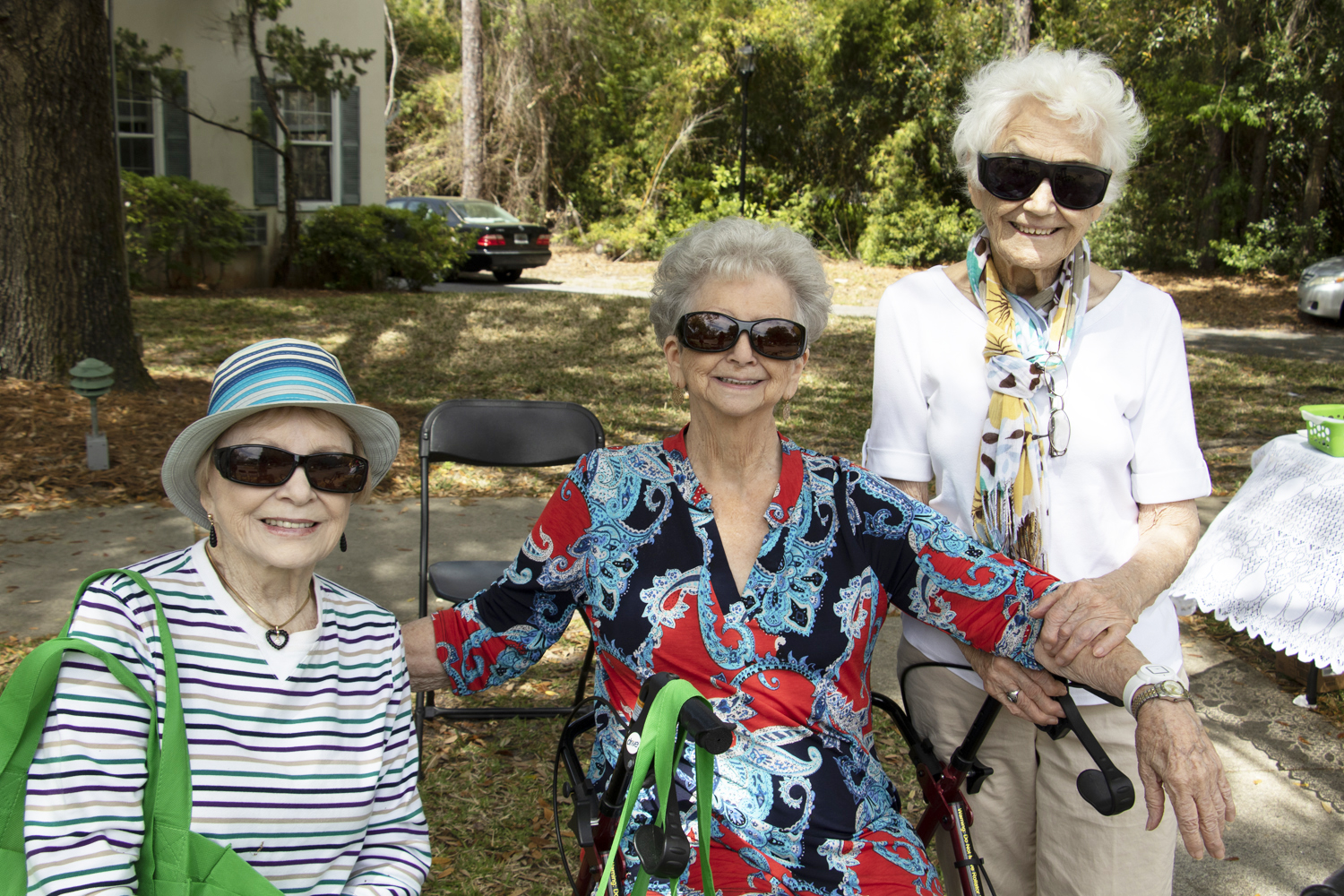Download our Free Guide:
Senior Living Explained
Learn what different types of senior living care are available and which one best fits your needs now and in the future.



There is no question that aging affects your eyes. More than 94% of women and men age 65 or older wear glasses. However, age-related macular degeneration, or AMD, is the most common cause of severe vision loss in seniors. About 1% of seniors age 65-75 develop age-related macular degeneration, but that jumps to 10% to 20% for those older than 75.
This progressive disease may not be as prevalent as other better-known conditions such as diabetes or heart disease, but it is scary to think about losing your sight. There is no cure for AMD, but early diagnosis can lead to treatments that help slow progression in many cases.
.jpeg?width=375&height=391&name=Resident%20(4312).jpeg) What to Know About Age-Related Macular Degeneration
What to Know About Age-Related Macular Degeneration
The macula is a small area in the middle of your retina that enables you to see clearly in the center of the visual field. In some people, the macula can start to deteriorate with age, though scientists don’t know why this happens. As deterioration progresses, you start to lose central vision. What you see directly in front of you may look fuzzy or blurry, making it difficult to do everyday tasks such as reading, handwork, driving, or watching TV.
AMD can develop in one or both eyes, and the severity may differ from eye to eye. It does not affect peripheral vision, so patients do not become totally blind.
 There are two types of macular degeneration:
There are two types of macular degeneration:
 If you have a family history of macular degeneration, your risk of also developing the disease is three to four times higher than for the general population. Other than age and heredity, common risk factors include:
If you have a family history of macular degeneration, your risk of also developing the disease is three to four times higher than for the general population. Other than age and heredity, common risk factors include:
 How to Protect Your Precious Eyesight
How to Protect Your Precious Eyesight
Because dry AMD is painless, it can easily go undetected, sometimes for years. This is why ophthalmologists typically examine your retina and macula as part of a vision-check visit. Early symptoms that patients may notice include distorted or fuzzy vision and/or shadowy areas in the central part of your vision.
High-risk individuals and those diagnosed with AMD can do certain things on their own to help manage the disease. In fact, these recommendations are healthy choices for all seniors:%20-1.jpg?width=375&height=375&name=Americus%20IL%20Residents%20-%20Mack%20and%20Linda%20Martin%20(1594)%20-1.jpg)
.jpeg?width=375&height=428&name=Richmond%20Hill%20Resident%20-%20Elizabeth%20Wilbanks%20102nd%20Birthday%20(2328).jpeg) There are also some medical treatments available. For those at high risk of developing dry AMD, your doctor may recommend antioxidant vitamins and minerals (AREDS or AREDS2). According to the National Eye Institute, AREDS reduce risk of worsening AMD by about 25% in people with intermediate AMD and those with advanced AMD in just one eye. In 2023, the Food and Drug Administration approved a new drug aimed at treating a specific late-stage form of AMD.
There are also some medical treatments available. For those at high risk of developing dry AMD, your doctor may recommend antioxidant vitamins and minerals (AREDS or AREDS2). According to the National Eye Institute, AREDS reduce risk of worsening AMD by about 25% in people with intermediate AMD and those with advanced AMD in just one eye. In 2023, the Food and Drug Administration approved a new drug aimed at treating a specific late-stage form of AMD.
Wet AMD is treated with anti-vascular endothelial growth factor (anti-VEGF) drugs. By slowing growth of blood vessels in the eye, anti-VEGF works to reduce or even stop production of abnormal vessels, slowing disease progression.
Whether or not it’s time to update your eyeglass prescription, getting your eyes checked regularly for glaucoma and other potential problems is the best way to ensure you can see clearly as you age.
If you feel like it's time for you or a loved one to explore senior living options, just contact us online or call one of our eight South Georgia campuses directly.
Learn what different types of senior living care are available and which one best fits your needs now and in the future.
